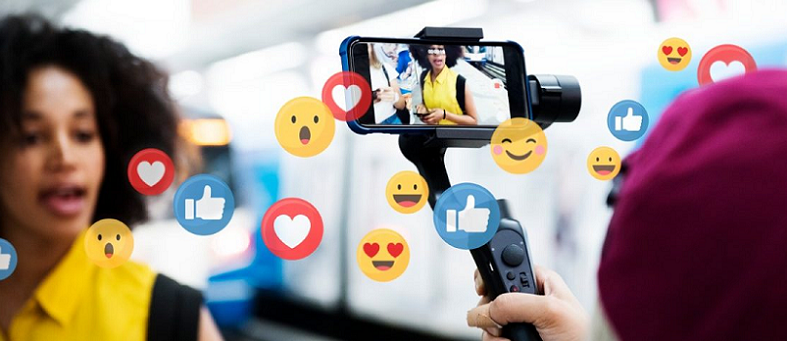The creator economy refers to the growing trend of individuals, including artists, musicians, writers, content creators, and influencers, who use online platforms to monetize their creative content and reach a large audience.
This trend has been made possible by advances in technology and the rise of social media, which have enabled creators to distribute and sell their work directly to their fans and followers. The creator economy is characterized by the democratization of content creation and distribution, allowing more people to earn a living from their creative pursuits.
What Is the Creator Economy?
The creator economy encompasses a wide range of content and services, including digital art, music, writing, photography, video production, and social media influencer marketing. In this economy, creators use online platforms like YouTube, Twitch, Instagram, and Patreon to reach their audience and monetize their content through means such as advertising, merchandise sales, subscription services, and direct payments from fans.
One of the key benefits of the creator economy is that it allows creators to bypass traditional gatekeepers and reach their audience directly. This enables them to build closer relationships with their fans, increase their earning potential, and retain more control over the distribution and monetization of their work.
Another important aspect of the creator economy is the role of technology. The availability of affordable and accessible tools, such as smartphones and social media apps, has made it easier for people to create and distribute content. At the same time, advancements in fields such as artificial intelligence, virtual and augmented reality, and blockchain are opening up new opportunities for creators to innovate and reach new audiences.
The creator economy is still in its early stages of development, but it has already had a significant impact on the way that people earn a living from their creative pursuits. It is expected to continue to grow and evolve as technology continues to advance and more people embrace the opportunities offered by this new economy.

Pros and Cons of the Creator Economy
Overall, the creator economy offers a range of benefits and challenges, and success in this economy depends on a creator’s ability to reach and monetize their audience effectively.
Pros of the Creator Economy
The creator economy offers several advantages, including the democratization of content creation, direct monetization, closer relationships with fans, increased earning potential, and lower barriers to entry. Creators can reach a large audience and monetize their work directly, bypassing traditional gatekeepers. By using online platforms, they can build closer relationships with their fans and connect with them more directly.
- Democratization of content creation: The creator economy allows anyone with a creative talent and a smartphone to reach a large audience and monetize their work.
- Direct monetization: Creators can monetize their work directly through advertising, merchandise sales, subscriptions, and direct payments from fans, bypassing traditional gatekeepers.
- Closer relationships with fans: The creator economy allows creators to build closer relationships with their fans and connect with them more directly.
- Increased earning potential: Creators can potentially earn more money by monetizing their content directly, rather than relying on traditional middlemen.
- Lower barriers to entry: The low cost of entry and low overhead costs associated with creating content online make it easier for people to start a creative business.

Cons of the Creator Economy
The creator economy also has its disadvantages, including overcrowding, dependence on algorithms, intellectual property challenges, inadequate monetization options, and lack of stability and security. Overcrowding in the market can make it difficult for creators to stand out and grow their audience.
- Overcrowding: The low barriers to entry and ease of access to audiences can lead to a crowded and highly competitive market, making it harder for creators to stand out and grow their audience.
- Dependence on algorithms: Creators often have to rely on algorithms to reach their audience and monetize their content, which can be unpredictable and subject to changes by platform owners.
- Intellectual property challenges: Protecting creative content in the digital age can be difficult, and creators may struggle to enforce their rights and prevent their work from being stolen or misused.
- Inadequate monetization options: Some creators may struggle to monetize their content effectively, especially if they are unable to reach a large audience or are competing in a crowded market.
- Lack of stability and security: The creator economy can be an uncertain and unpredictable source of income, and creators may struggle to maintain their revenue over the long term.
Is the Creator Economy Immune from Recession?
The creator economy is not immune to economic recessions and downturns. Just like any other industry, it can be affected by changes in consumer behavior and spending patterns. For example, during an economic recession, people may have less disposable income to spend on creators’ content and services, leading to a decrease in revenue for creators.

However, the creator economy does offer some potential advantages that may make it more resilient during economic downturns compared to other industries. For example, the low barriers to entry and low overhead costs associated with starting a creative business online can make it easier for creators to pivot and adapt to changes in the market. Additionally, the ability to reach a global audience and monetize content through a variety of channels can provide a degree of stability and diversity in revenue streams.
It is also worth noting that the impact of economic recessions on the creator economy can vary depending on the specific creators and the type of content they produce. For example, creators who produce essential or educational content may be more likely to maintain their audience and revenue during a recession, while those who produce luxury or discretionary content may see a decrease in demand.
While the creator economy is not entirely recession-proof, it may be more resilient to economic downturns than other industries, particularly due to its low barriers to entry and diverse revenue streams.

